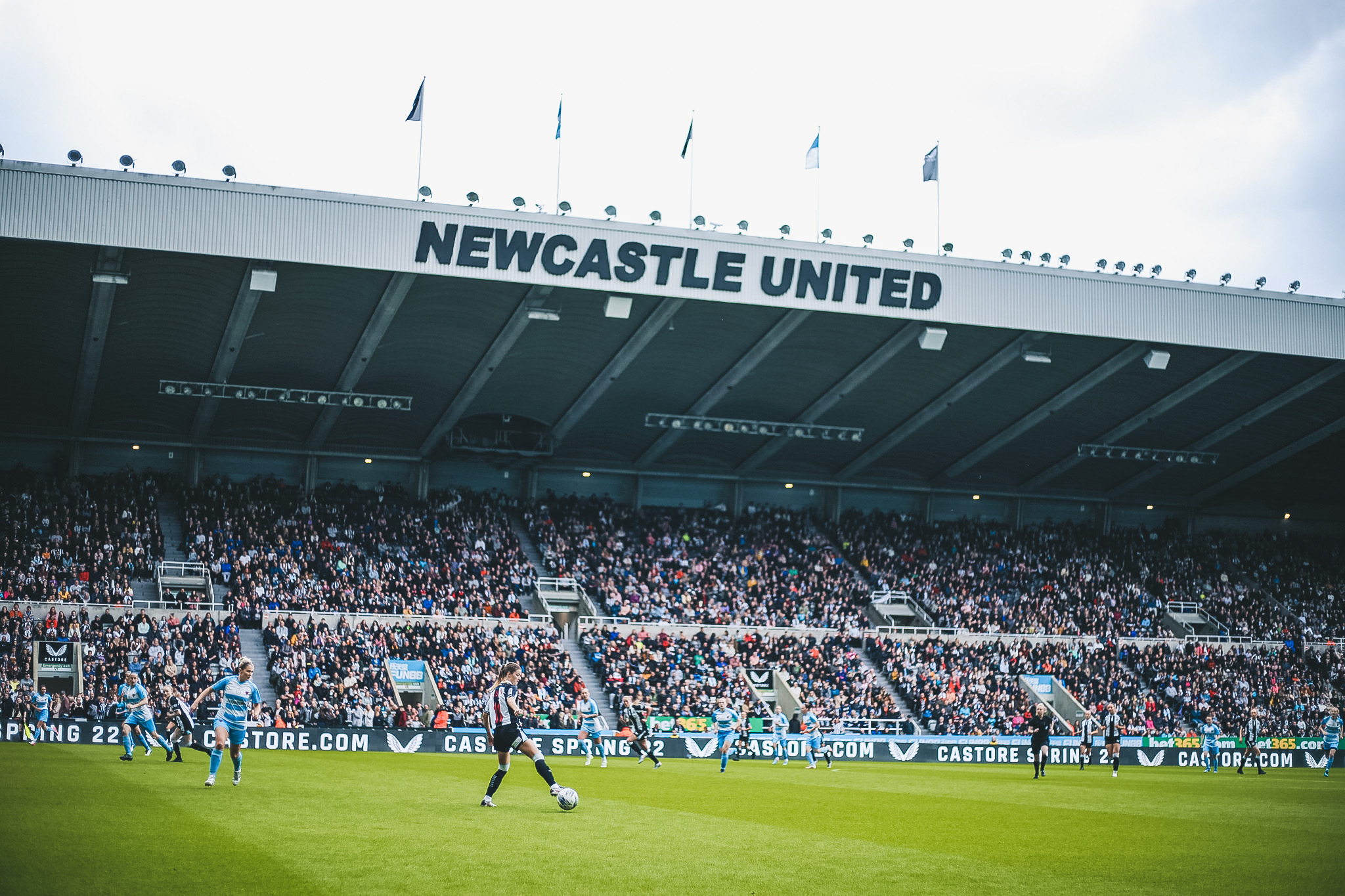It was hinted at yesterday but this morning FA Women’s National League has today launched a new strategy to strengthen the third and fourth tiers of women’s football in England. The strategy, titled Empowering For Success, is backed by £1 million of investment per season for the next three years from the Premier League.
The strategy aims to ensure the advancements in quality across the professional game are also harnessed throughout Tiers 3 and 4 of the women’s football pyramid. Empowering For Success is focused across eight priority areas, each with their own strategic goal, ultimately enabling FA WNL clubs to flourish both on and off the pitch through the development of players, workforce, and infrastructure. The eight priority areas are:
- Players: Developing the training, playing and overall environment players experience so they can be the best they can be, on and off the pitch.
- Coaches and Leaders: Developing coaches to be exceptional across The FA WNL, ensuring they are representative of society.
- Referees: Driving upwards the standard of refereeing alongside improving the opportunity and experience of match officials in The FA WNL.
- Club Development: Creating an inclusive, player-centred and sustainable club network.
- League Development: Ensuring The FA WNL keeps pace with the growth of the women’s game and offers the best-possible development opportunities to member clubs.
- Facilities: Ensuring FA WNL and clubs have access to the required infrastructure on matchdays, at training venues and off-field.
- Commercial: Defining The FA WNL’s commercial value and engaging with partners to grow revenues and inward investment.
- Marketing and Communications: Growing the reach and appeal of The FA WNL by increasing exposure and awareness through matchday activity and league channels, driving bigger attendances and league following.
Empowering For Success was created in collaboration with FA WNL member clubs, ensuring a range of voices from administrators and coaches to players and fans were all given the chance to help shape the future of the league. By 2025 the strategy hopes to increase the recognition of The FA WNL amongst women’s football fans, decrease the number of weather-related postponements per season, increase the number of league commercial partners and increase the average attendance of league fixtures.
Baroness Sue Campbell, The FA’s Director of Women’s Football, said: “The launch of this strategy is game-changing for the women’s football pyramid. It will ensure The FA WNL can maintain pace with the wider growth of the women’s game, and the clubs and their players can thrive both on and off the pitch. We want to say a huge thank you to the Premier League for their support, without which none of this would be possible. The money they are investing will transform the experience of everyone who plays in the third and fourth tiers of women’s football.”
The Premier League has also announced additional support for clubs in Tiers 3 and 4 of the women’s football pyramid through the Premier League Stadium Fund. Eligible clubs can apply for grants of up to £20,000 to support the improvement of their stadium facilities, making grounds more welcoming for all and enhancing the playing and spectating experience within women’s football. The FA will be working with clubs to identify their facility needs, with funding being made available this summer. The Football Foundation will be handling the grant administration.

Sandi Dosanjh, FA Women’s National League Board Chair, said: “I am incredibly proud and humbled by the collective efforts of The FA WNL board and management committee and The FA to develop a strategy that will prove to be a watershed moment for women’s football. For the players, coaches and fans of our clubs, we have truly been inspired by your passion for the game and will implement this strategy to take the league to the next level. The FA WNL is uniquely placed within women’s football to inspire positive change for communities around the country, whilst taking on-field quality to new levels. With the support of The FA, and with our strategy in place, the league and its clubs can continue to grow as the heartbeat of women’s football.”
Richard Masters, Chief Executive of the Premier League, said: “It is an exciting time for women’s and girls’ football in this country and we are delighted to be able to assist the development of the game with investment that will support FA Women’s National League clubs. Along with our funding for the Girls’ Emerging Talent Centres, it shows the Premier League’s commitment to provide opportunities for female players of all ages. We are proud of the investment we make to help develop football at all levels and this funding expands on the wide-ranging support we provide. Our clubs are committed to developing women’s and girls’ football and it’s important that the Premier League plays a role in this centrally.”
For a long time I have been arguing that the FA’s true measure of success is not how well the Lionesses or Women’s Super League are doing but how they grow the whole of the women’s football pyramid. With the Women’s Super League and Championship going from strength to strength this move will go some way to closing the gap between tiers.
It is no coincidence that Southampton and Wolves dominated their respective leagues as both sides can call upon the support of cash rich Premier League men’s teams, something that many of the National League are unable to do so. This move will safeguard the future of clubs and hopefully the main beneficaries of this will be the players through improved facilities and being paid.









